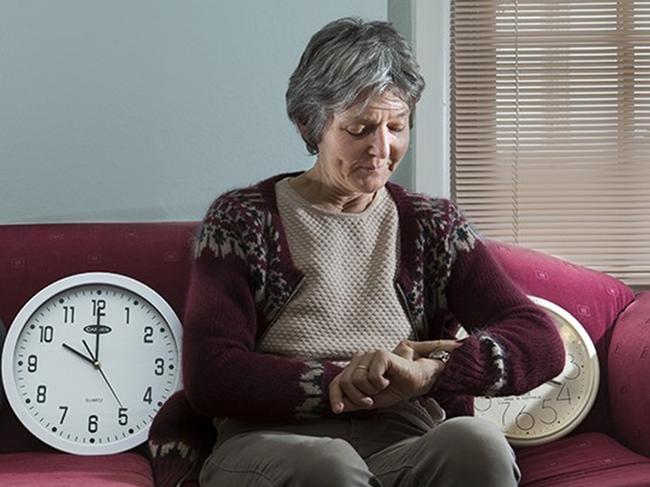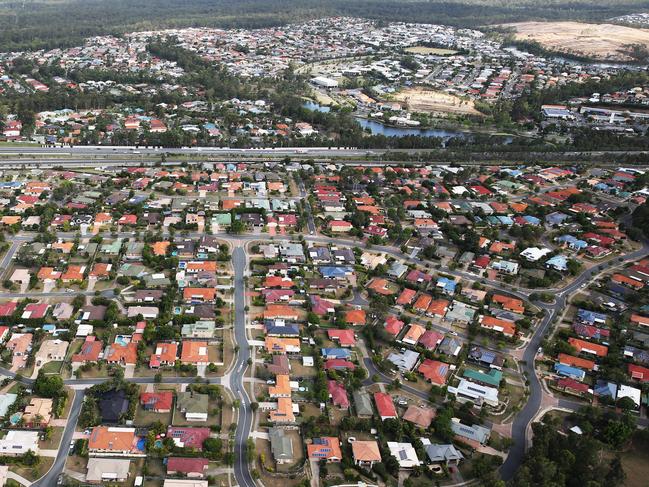Australians are being crippled under time pressures, here’s how you can regain some time
AUSTRALIANS are among the worst in the world for managing our time, with our health and families at risk. But there are a few easy ways to win time back, and refocus on the things that matter most.
Real Life
Don't miss out on the headlines from Real Life. Followed categories will be added to My News.
AUSTRALIANS are among the worst in the world for managing our time and our health and families are suffering as a result.
Time management is one of the key issues plaguing our top academic minds and they say more needs to be done to help us all regain control over our time.
News Corp Australia has spoken to researchers and academics across the country who have given their insights into the issue of time management and how we can all lead a much less stressful life by making better use of our time at work and at home.
SLEEP CRISIS: Excessive screen time distrusting sleep
HEALTH FEARS: Experts concerned about parents skipping breakfast
FAMILY BONDING: Dads need better parental leave policies

Australia ranks eight on the list of OECD countries for long work hours and those undertaking caring duties for children or elderly parents are being slammed both ways with paid and non-paid work taking up the majority of their day.
A total of 13.2 per cent of Australian employees are working 50 or more hours a week in paid employment and 43 per cent of Australians are working 40 or more hours in paid employment a week according to the Australian Bureau of Statistics.
Employed women with children are working 74 hours in total a week in paid and unpaid work or caring duties, compared to employed men with children who are working 72.5 hours in paid and unpaid work a week according to the HILDA survey.
Without a better way forward to manage our time the nation is at risk of major burnout, according to experts.

Lyndall Strazdins, director of population health at the Australian National University, said Australian parents in particular were spending more time on work and care than many other countries around the world.
“It is very hard and more people are seeking to combine major time demands and their health is suffering as a result,” Dr Strazdins said.
She said the time was now for looking at ways we can address time stress from a whole of government and societal approach.
“If we look at other cities around the world that are moving towards being Smart Cities where their goal is to create infrastructure and services that give citizens back more time,” Dr Strazdins said.
“In Helsinki the Kalasatama Smart City has a goal of giving people back an hour each day via more efficient technologies and less commute times. We need to contemplate that here in Australia.”

Social researcher Mark McCrindle agreed that working parents and those with caring responsibilities were being crippled under the weight of time pressures the most — but believed parents especially needed to use the resources within their home.
“Previous generations very much had their children doing tasks and chores around the home to help ease the pressure on the family but nowadays parents don’t seem to do that enough,” Mr McCrindle said.
“It’s done from the best of intentions because parents today are often more focused on giving their children the space to spend time on their education but ultimately it means parents have less time and are more stretched.”

Demographer Bernard Salt said social media was likely eating up a lot of our time and more personal regulation of that would likely result in better use of our time.
“I think what we are doing is simply trying to fit more into our 24-hours than we did perhaps 10 or 15 years ago and a part of that is spending more time on social media,” Mr Salt said.
“Interestingly the OECD figures show our total yearly working hours in Australia have reduced in the past 10 years partly due to more people working part time.
“But we are wasting more time on social media and I think if we all realised how much time we spent on that each day we’d be regulating it more and getting more of our day back.”
Robyn Johns, senior lecturer of HR Management at the University of Technology — Sydney said people today were often trying to juggle many tasks at once believing that to be more productive, when in actual fact it was slowing them down.
“If you think about your computer if you have a whole bunch of programs open it slows the computer down and that is the same for us,” Ms Johns said.
“Research has shown that one of the better ways to manage your time and be more efficient is to actually do one thing at a time, or multiple things only if they are complimentary.”
TEN TIPS TO MAKE THE MOST OF YOUR TIME
1. Start a shared diary with those in your family, that way you will know exactly where and when everyone is supposed to be;
2. Schedule your day. This includes personal time and work time. If you’ve blocked out 30 minutes for yourself you are more likely to stick to it if it is scheduled
3. Where possible focus on one task at a time — you’ll get it done more efficiently than if you are juggling multiple tasks, meaning you ultimately have more time
4. Write a to-do list for the next day in the evenings, that way you are sorted for the next day and don’t have it all bouncing around in your head
5. When an idea or task comes to you, write it down or send yourself an email. That way you are not wasting time trying to remember it and can come back to it at a time that suits you
6. Schedule emails. If you have time to pump out multiple emails but don’t want them all sent until certain times you can schedule them to send at specific times
7. Prep as much as possible, where possible. Things such as laying out your clothes the night before, packing your kids bags and putting them in the car the in the evenings so you can just get up and go in the morning
8. Batch cook freezer meals or snacks once a month. It will take two hours out of your weekend once a month but you will then save time not having to rummage for snacks or figure out what to cook for dinner on the days where you run out of time
9. Say no more. Before you say yes to a commitment, take some time to check your diary and really figure out if it is stretching yourself too thin
10. Ask for help and outsource where possible. It may not always be feasible to hire a cleaner or gardener but even just asking your friends or family to help you in one area will ease the load and give you back more time


